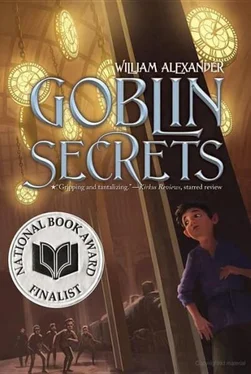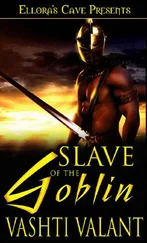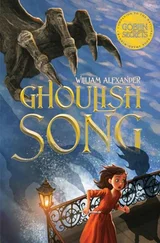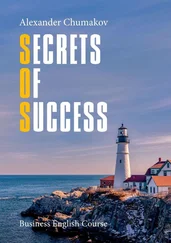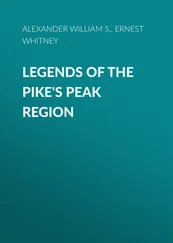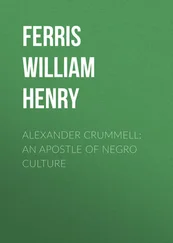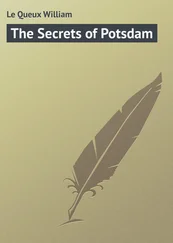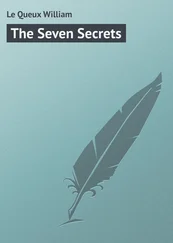The Southside Rail Station was empty, save for pigeons, and for Rownie. Dusty, cloudy sunlight came through the glass panes of the ceiling. It slid down over the brass finish of abandoned railcars, and fell on the curved rust of wrought-iron benches. Pigeons swooped down from the dangling clocks and passed through the dusty light, circling, silent.
“Graba!” Rownie called out into the wide and dusty air. “I have words for you! Come hear them yourself!”
Tell me about my brother , he said silently. Come and tell me anything at all about Rowan, in exchange for the chance to catch me. Come help me find him.
At first only silence answered. The light faded, and raindrops pattered against the glass overhead. Then gearwork noise echoed throughout the station, bouncing back and forth between stone floors and columns. He thought the sound might be Graba’s legs making their long strides through a station corridor, but it wasn’t.
A single railcar drove through the tunnel at the far side of the station and came to a halt on the track only a few paces from where Rownie stood. It was an actual, working, gleaming railcar. Thick curtains covered long glass windows on the inside. The mirrored brass finish had been polished and scrubbed, so there was hardly any tarnish on it anywhere.
Rownie stared at the splendid thing. He took a few steps closer. How did it get here? he wondered. They must have pumped the water out of the whole tunnel.
The railcar doors opened. The Captain of the Guard stepped down to the platform. Vass followed behind him. She wore no expression on her face at all.
“Rownie of Southside,” the Captain said. “The Lord Mayor of all Zombay would speak with you.”

ROWNIE WAS UNPREPARED for this turn of events. He stared at the Captain of the Guard with his mouth hanging open.
The Captain marched forward. His boots rang out against the polished stone floor. His irises tocked and ticked in small, perfect circles as he focused on Rownie and bore down on him. The Captain took hold of Rownie’s arms and steered him toward the railcar before Rownie could even think about slipping on the fox mask and declaring himself uncatchable.
“You are not under arrest,” the Captain said. “You are suspected of having broken lawful edicts of this city, but you are not under arrest. The Lord Mayor would speak with you.”
“He’s telling the truth,” said Vass.
Rownie glared at her. “I gave you a message for Graba .”
Vass nodded. “And it would be so much worse for you if she were here instead,” she told him. Her voice was cold. Her face was cold. Both were glass-smooth and offered nothing to hold on to.
She went back inside the railcar. The Captain of the Guard pushed Rownie through the doorway after her, and shut the door behind them all.
Gold lanterns burned inside. Red cloth covered the floor, the windows, and the far wall in hanging curtains. A long dining table took up most of the space, and a sumptuous meal of roast goose and fresh fruit took up most of the table. Rownie could smell the crispy goose skin. He had never in his life eaten goose, but at that moment he very much wanted to try it.
Chefs had refletched the bird and posed it upright. Its wings stretched out to their full span across the table. Both the wings and neck had been filled with tiny filaments of gearwork. The wings flapped slowly back and forth. The beak opened and sang a little tune. It was pretty. It did not sound much like a goose.
The Lord Mayor of Zombay cut chest meat from this seemingly live bird, and took a bite.
Rownie stared. The Mayor smiled at him from behind his trim beard and his chins. He only looked a little bit like his statue. He was not a very wide man, but he did have a few extra chins.
Vass sat down beside the Lord Mayor as though she had every right to be there, or anywhere else that she might choose.
“Welcome, young sir,” said the Mayor. He wore many rings. They knocked together when he moved his hands—and his hands were always moving. “I would like to offer you employment in my own private troupe of actors.”
As he spoke, the railcar shuddered and moved. Rownie felt it slide over rails and down into the tunnel, down under the River, down in a long, straight line toward Northside. The cooked goose flapped its wings and sang another song.
Rownie thought about the Mayor’s words. He tried to make them make any kind of sense. “Your own what ?”
“My own private troupe,” the Mayor said again. “I have a few of them here with me.” He clapped his hands. The red curtains at the front of the railcar opened to reveal a small stage. Three performers stood, bowed, and began to tell a story in dumb show. They were all three masked. One mask had been painted with sharp, straight lines, like a tattooed map of Northside, and crowned with a coronet of small towers—Zombay towers, not as they currently stood, but as they used to stand. The mask wore a stern and kingly expression. The other two masks looked like fish.
Rownie forgot about how tasty the goose must be, and he almost forgot how absurd it was that Vass sat beside the Lord Mayor of Zombay. “You outlawed acting!” he shouted. He tried to keep his voice down. He couldn’t. “How can you have a troupe of your own, and a stage of your own, when you just outlawed them all?”
The secret play continued to unfold. The three performers didn’t seem to notice or mind that their audience was talking among themselves rather than paying proper attention. They went on telling their silent story, indifferent to whomever might be watching.
“It is true,” said the Mayor. His rings knocked together. “I did outlaw the theater. But just because a thing is not good for everyone doesn’t mean that I should not still enjoy it, if I can.” He winked. “Have an almond.”
He tossed Rownie a small, spiced nut. Rownie caught it. Outrage boiled up inside him, but he tried to swallow it down. Shouting at the Lord Mayor was probably not a clever thing to do, especially under the cold and ticking watchfulness of the Guard Captain, so Rownie ate the almond instead. He chewed it furiously until there was nothing left.
The Mayor continued with his meal and offered nothing more to Rownie. Vass ate a few grapes and also offered nothing. The railcar moved smoothly on its track, somewhere underneath the River.
“Floods are coming, you know,” the Mayor said. He said it to Vass and not to Rownie.
“I know they are, sir,” said Vass.
“They are expected to fill the ravine entirely and rise up as high as Southside—which is, of course, lower and closer to the River. The damage will be very severe.” The Mayor shook his head, and his chins, at the tragedy. “I am doing what I can to prepare. I am pulling together enough funds to rebuild, after the flooding has come and gone. We will return the city to its days of glory, and we will help Southside recover—and help to make it a more orderly place.”
“That is very good of you, sir,” said Vass. She ate another grape. Rownie found it impossible to tell whether she was pandering to the Mayor or honestly agreeing with him or possibly making fun of him. Her voice and her face were still glass-smooth.
“Thank you,” said the Mayor. “I do what I can. But meanwhile, before the devastation comes, it would be sensible to be in Northside. We should remain high out of reach of the coming floods—most especially since I have masked performers to address the River on behalf of the north.” He waved one hand at the stage and at the actors, without actually looking in their direction. “You understand this, of course,” he said to Vass. “It is why you came to me.”
Читать дальше
